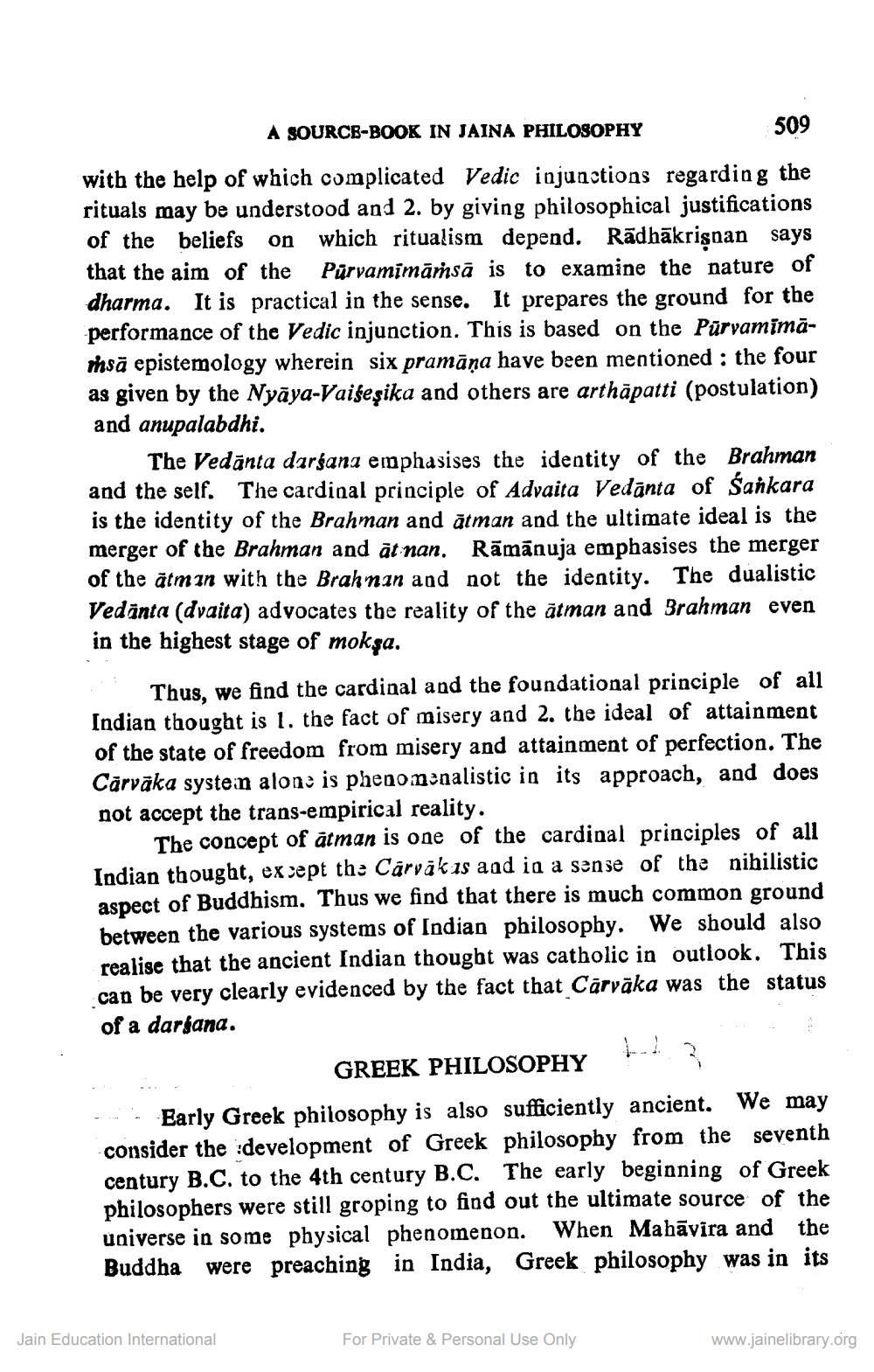________________
A SOURCB-BOOK IN JAINA PHILOSOPHY
509
with the help of which complicated Vedic injunctions regarding the rituals may be understood and 2. by giving philosophical justifications of the beliefs on which ritualism depend. Rādbākrişnan says that the aim of the Pūrvamimāṁsā is to examine the nature of dharma. It is practical in the sense. It prepares the ground for the performance of the Vedic injunction. This is based on the Pürvamīmāthsā epistemology wherein six pramāņa have been mentioned ; the four as given by the Nyāya-Vaiseșika and others are arthāpatti (postulation) and anupalabdhi.
The Vedānta darsana emphasises the identity of the Brahman and the self. The cardinal principle of Advaita Vedānta of Sankara is the identity of the Brahman and ātman and the ultimate ideal is the merger of the Brahman and at nan. Rāmānuja emphasises the merger of the atmın with the Brahman and not the identity. The dualistic Vedānta (dvaita) advocates the reality of the ātman and Brahman even in the highest stage of mokşa.
Thus, we find the cardinal and the foundational principle of all Indian thought is 1. the fact of misery and 2. the ideal of attainment of the state of freedom from misery and attainment of perfection. The Cārvāka systein alone is phenomenalistic in its approach, and does not accept the trans-empirical reality.
The concept of ātman is one of the cardinal principles of all Indian thought, except the Cärvāk is aad in a sense of the nihilistic aspect of Buddhism. Thus we find that there is much common ground between the various systems of Indian philosophy. We should also realise that the ancient Indian thought was catholic in outlook. This can be very clearly evidenced by the fact that Cārvāka was the status of a darsana.
GREEK PHILOSOPHY I ? B . Early Greek philosophy is also sufficiently ancient. We may consider the development of Greek philosophy from the seventh century B.C. to the 4th century B.C. The early beginning of Greek philosophers were still groping to find out the ultimate source of the universe in some physical phenomenon. When Mahāvīra and the Buddha were preaching in India, Greek philosophy was in its
Jain Education International
For Private & Personal Use Only
www.jainelibrary.org




